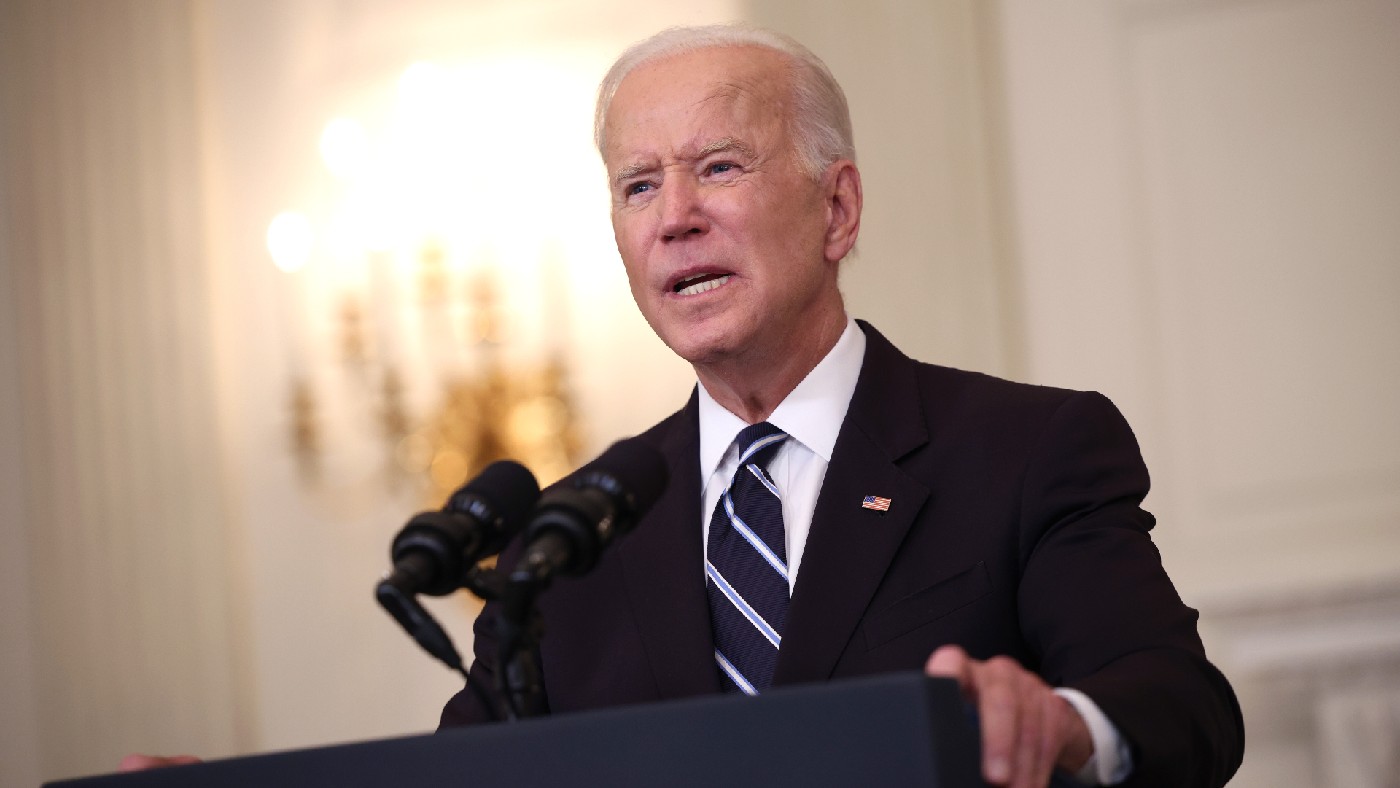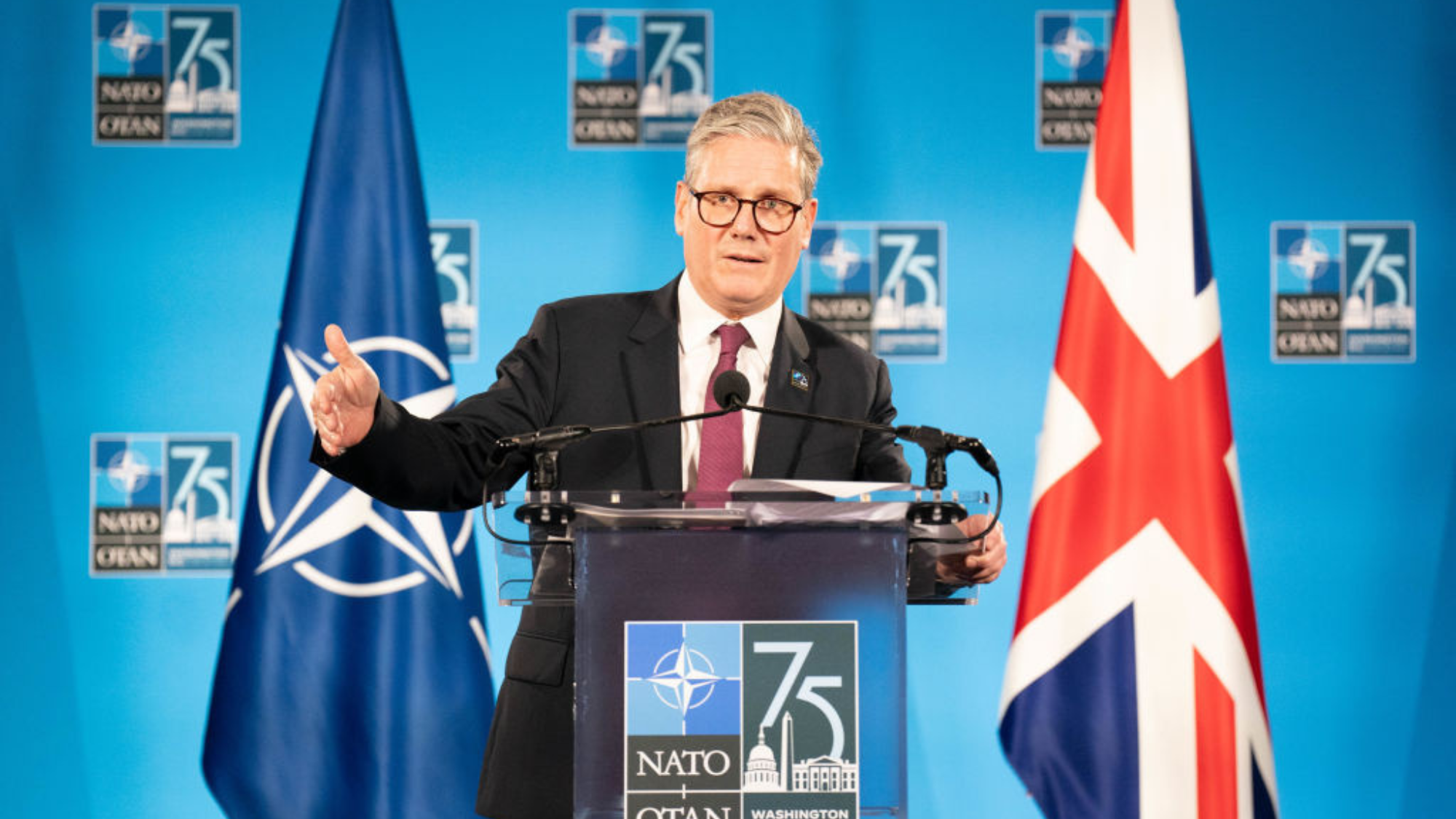America’s withdrawal from Afghanistan: a retreat into isolationism?
‘In his selfish unilateralism’, Biden is no better than Trump, said The Daily Telegraph

A free daily email with the biggest news stories of the day – and the best features from TheWeek.com
You are now subscribed
Your newsletter sign-up was successful
Twenty years ago, the 9/11 attacks “catapulted the US and the UK” into an intense “security partnership”, said Peter Ricketts in The Guardian. The first world leader to visit Ground Zero, Tony Blair promised that Britain would “stand shoulder to shoulder” with the US; and the UK duly became a lead nation for the Nato mission in Afghanistan, triggered by the US and its allies invoking Article 5 of its founding treaty (the principle that an attack on one is an attack on all) for the first time in the alliance’s history.
In the next two decades, the UK provided the largest number of troops after the US, and suffered the second-largest number of combat deaths. Yet when President Biden began his withdrawal of US troops last month, none of that seemed to count for much: Britain was not invited to play any part in decision-making. On the contrary, with Biden reportedly refusing to take his phone calls for 36 hours, Boris Johnson was forced to plead with him through the media for more time in which to complete the pull-out – only to be turned down flat.
There was something “ice cold” and “careless” about the way Biden dismissed the fears of US allies in Afghanistan, said Iain Martin in The Times. If this was a blip, brought on by the “fog of war”, we might get over it. But it’s not: what we are seeing is the acceleration of a “retreat into isolationism, generated by a cross-party consensus since the Iraq War”.
The Week
Escape your echo chamber. Get the facts behind the news, plus analysis from multiple perspectives.

Sign up for The Week's Free Newsletters
From our morning news briefing to a weekly Good News Newsletter, get the best of The Week delivered directly to your inbox.
From our morning news briefing to a weekly Good News Newsletter, get the best of The Week delivered directly to your inbox.
The “brutal” truth is that we and the rest of the “democratic West” can no longer rely on the US, and must look for new ways of protecting ourselves. Some senior Tories are already thinking along these lines, said Andrew Rawnsley in The Observer. Defence Secretary Ben Wallace has mentioned France as a partner, in supporting African countries besieged by extremists.
And in Europe, there is talk about the need for a new defence partnership. The UK could be a useful external member of it, but there is a “snag”. Such an alliance would require “respect and trust”. Post-Brexit, those are in short supply, and Johnson is hardly the man to rebuild the burnt bridges.
Yet talk of the US’s retreat is premature, said Christopher Meyer in The Daily Telegraph. “In his selfish unilateralism”, Biden is no better than Trump. But in justifying the withdrawal from Afghanistan last week, what he said was that the US would embark on no more big operations to “remake other countries”. In other words, he is ending America’s hubristic mission to spread its democratic values from the barrel of a gun.
This is not isolationism, it is a “doctrine to align intervention abroad with American interests and achievable goals”. We don’t yet know how Biden will apply it, but it’s not wrong in itself.
A free daily email with the biggest news stories of the day – and the best features from TheWeek.com
-
 What are the best investments for beginners?
What are the best investments for beginners?The Explainer Stocks and ETFs and bonds, oh my
-
 What to know before filing your own taxes for the first time
What to know before filing your own taxes for the first timethe explainer Tackle this financial milestone with confidence
-
 The biggest box office flops of the 21st century
The biggest box office flops of the 21st centuryin depth Unnecessary remakes and turgid, expensive CGI-fests highlight this list of these most notorious box-office losers
-
 Russia’s war games and the threat to Nato
Russia’s war games and the threat to NatoIn depth Incursion into Poland and Zapad 2025 exercises seen as a test for Europe
-
 Operation Rubific: the government's secret Afghan relocation scheme
Operation Rubific: the government's secret Afghan relocation schemeThe Explainer Massive data leak a 'national embarrassment' that has ended up costing taxpayer billions
-
 How drone warfare works
How drone warfare worksThe Explainer From Ukraine to Iran, it has become clear that unmanned aircraft are rapidly revolutionising modern warfare
-
 How the Israel-Iran conflict broke out
How the Israel-Iran conflict broke outThe Explainer Israel's strike on Iran's nuclear and missile programmes was years in the planning
-
 The state of Britain's Armed Forces
The state of Britain's Armed ForcesThe Explainer Geopolitical unrest and the unreliability of the Trump administration have led to a frantic re-evaluation of the UK's military capabilities
-
 Russia's spies: skulduggery in Great Yarmouth
Russia's spies: skulduggery in Great YarmouthIn the Spotlight 'Amateurish' spy ring in Norfolk seaside town exposes the decline of Russian intelligence
-
 British defence: the crisis in the Armed Forces
British defence: the crisis in the Armed ForcesTalking Point Depleted military power may not be able to meet its own commitment to up defence spending to 2.5%
-
 Aid to Ukraine: too little, too late?
Aid to Ukraine: too little, too late?Talking Point House of Representatives finally 'met the moment' but some say it came too late